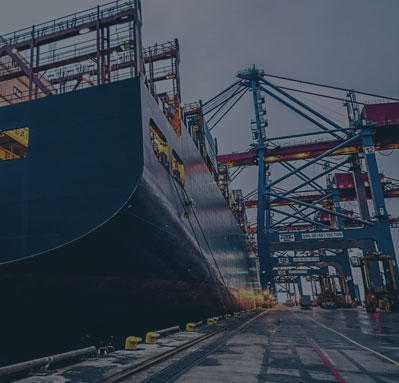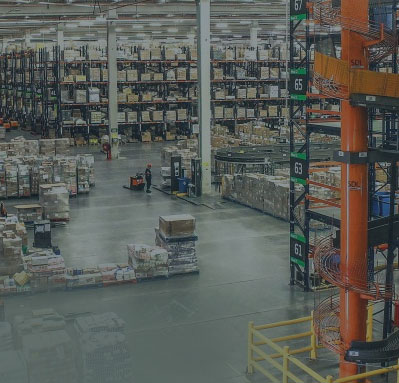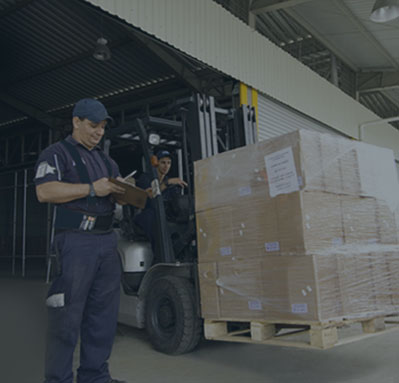Dubai is a global trade hub, renowned for its strategic location, cutting-edge infrastructure, and pro-business policies. As part of the United Arab Emirates (UAE), it offers businesses a range of trade opportunities, each with its own customs clearance rules. Whether you’re operating within Free Zones, trading with Gulf Cooperation Council (GCC) states, or importing into the local market, it’s crucial to understand the specific procedures for each area to ensure smooth and compliant imports.
This article will guide you through the customs clearance processes for each trade zone, explain the necessary documentation, and explore how the Makasa system helps simplify trade between GCC countries, ensuring a seamless flow of goods.
Understanding Customs Clearance in Dubai
Customs clearance is a critical component of any import operation in Dubai. Whether you’re bringing in goods for sale in local markets or using Dubai’s Free Zones as a base for regional distribution, the right documentation and adherence to customs regulations are essential. Dubai Customs, the government agency responsible for overseeing the import of goods into Dubai, enforces the regulations and ensures compliance with UAE laws. Importers must work closely with Dubai Customs to guarantee that their goods are cleared without unnecessary delays or complications.
Free Zones in Dubai: Key Considerations
Dubai’s Free Zones (FZs) are special economic zones created to encourage international trade and investment. These zones offer numerous benefits, including tax exemptions, full foreign ownership, and simplified import and export procedures. FZs are particularly attractive for businesses involved in manufacturing, logistics, or re-exporting goods to other markets. However, the customs clearance process for FZs differs significantly from that of local markets, as these regions have their own set of regulations designed to facilitate trade.
When importing goods into Dubai’s FZs, businesses must adhere to specific customs procedures to ensure smooth clearance. For instance, goods imported into these regions are generally exempt from customs duties, as long as they remain within the Free Zone or are exported to other countries. However, when goods are moved from a FZ into the local market, they become subject to customs duties, which must be paid before clearance.
Key Documentation for Free Zone Imports
To import goods into a Free Zone, companies need to submit a set of essential documents that ensure compliance with Dubai’s customs regulations. These documents verify the origin, value, and classification of the goods, as well as any required permits for restricted items. Completing the documentation accurately is crucial for ensuring a smooth customs process. Once all paperwork is submitted and approved by Dubai Customs, the Free Zone Customs Center issues a Free Zone Bill of Entry, allowing the goods to be officially moved into the Free Zone.
Here are the essential documents required for Free Zone imports:
- Delivery Order from the Freight Forwarding Agent: This document authorizes the release of the cargo to the consignee once the shipment has arrived, ensuring the rightful recipient can claim the goods.
- Bill of Lading (for Sea Shipments) or Airway Bill (for Air Shipments): Serving as proof of shipment details and ownership, this document is critical for both sea and air cargo, outlining the terms of the transport and the parties involved.
- Road Manifest (for Land Shipments): This document provides a detailed list of items and quantities being transported by road, helping to ensure compliance with customs regulations and checkpoints during land transport.
- Commercial Invoice from the Free Zone Company to the Importer: Detailing the value, quantity, and description of the goods, this invoice is crucial for customs assessment and calculating applicable duties.
- Certificate of Origin from the Chamber of Commerce in the Country of Origin: This certificate verifies the manufacturing or production country of the goods, which is essential for determining the correct duties and eligibility for trade agreements.
- Packing List Specifying Item Descriptions, HS Codes, and Packaging Details: This document lists all items in the shipment along with their Harmonized System (HS) codes, weight, and packaging method, helping customs classify the goods and calculate duties.
- Special Import Permits for Restricted Goods: For regulated goods, such as pharmaceuticals or hazardous materials, special permits are required to ensure compliance with safety, health, or environmental regulations before the goods can be cleared through customs.
Importing to Local Markets: Steps and Regulations
When importing goods directly from other countries into Dubai’s local markets, businesses must submit an online customs declaration through MIRSAL, Dubai Customs’ electronic system, or through an authorized customs broker. Regular importers usually have a registered MIRSAL account, while smaller businesses or individual customers can use Bureau Services at designated customs offices to file their declarations.
Required Documentation for Local Market Imports
- Master or House Bill of Lading for sea shipments, or Master or House Airway Bill for air shipments
- Commercial Invoice
- Certificate of Origin
- Packing List
- Delivery Order
- Applicable Permits for restricted goods
Once these documents are submitted, the customs duties are calculated and must be paid before the goods can be cleared for entry into the local market.
Importing from Free Zones to Local Markets
When goods move from Free Zones to the local market, they become subject to customs duties, requiring a separate customs declaration known as “Import to Local from Free Zone.” This declaration can be submitted either by the importing company or through an authorized customs broker. The required documentation includes a Delivery Advice, Invoice, Packing List, and any necessary permits for restricted goods. Once the declaration is filed and the duties are paid, the goods are cleared for sale in the local market.
Importing from GCC Member States: The Role of the Makasa System
The UAE is part of the Gulf Cooperation Council (GCC), which also includes Bahrain, Kuwait, Oman, Qatar, and Saudi Arabia. Goods traded between GCC member states benefit from preferential customs treatment under the Makasa System, allowing businesses to avoid paying customs duties multiple times when transferring goods between GCC countries.
The Makasa system ensures that customs duties are paid only once within the GCC region. When goods are exported from one GCC country to another, the exporting country’s customs authorities issue a Statistical Export Declaration, which is stamped with a Makasa stamp. This stamp confirms that duties have been paid in the country of origin, allowing the goods to enter the receiving country without additional customs charges.
To import goods from another GCC country into Dubai, businesses need the following documents:
- Master or House Bill of Lading (for sea shipments) or Airway Bill (for air shipments)
- A Commercial Invoice detailing the goods’ value
- A Packing List outlining the shipment contents
- The Statistical Export Declaration with the Makasa endorsement
The Makasa system simplifies GCC trade by preventing the double payment of customs duties, making it easier for businesses to move goods across member states.
Customs Warehouses
Licensed owners of Customs Warehouses can import shipments or cargo and defer customs duty payments until the shipments are actually shipped to local markets for consumption.
Private Customs warehouse
A Private Customs Warehouse is managed by a licensed customs clearance and freight forwarding company in Dubai and the UAE. These warehouses can only store cargo or shipments owned by the company or on behalf of licensed importers. The cargo or shipments can be stored on payment of specified customs fees prescribed by the Customs Administration Control. The permissible cargo is specified based on the nature and kind of goods, goods under prohibition and the actual storage time.
Public Customs warehouse
A Public Customs Warehouse allows licensed importing companies who do not own a Customs Warehouse to import and store the goods
Documents required include:
- Master or House Airway Bill for Air channel
- Master or House Bill Of Lading for Sea Channel
- Commercial Invoice
- Certificate of Origin
- Packing List
- Delivery Order
Conclusion
Importing goods into Dubai’s Free Zones, local markets, and the broader GCC region requires a clear understanding of the customs clearance processes and documentation requirements. Whether you’re operating within a Free Zone or shipping goods across the GCC using the Makasa system, it’s essential to stay informed of the latest regulations to ensure compliance.
At Cargoline, we specialize in helping businesses navigate the complexities of Dubai’s customs clearance procedures. Whether you’re importing to Free Zones, local markets, or GCC member states, our team of experts can guide you through the process, ensuring your shipments are cleared efficiently and in compliance with all regulations. Contact us today to learn how we can help streamline your customs clearance operations and support your business in the UAE and beyond.
If you would like deeper technical insights on customs clearance you can read our Full Guide to Customs Clearance in Dubai & UAE.







